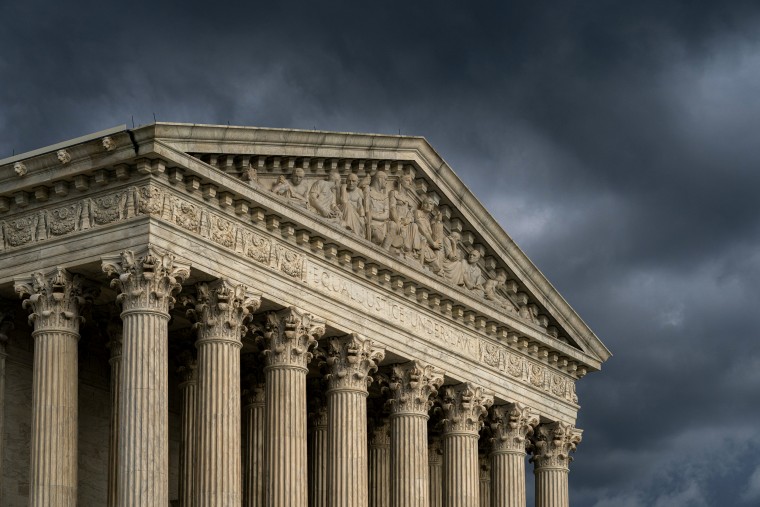Despite occasional claims about his support for "transparency," Donald Trump has gone to almost comical lengths to hide his financial records. As Rachel noted on the show the other day, the president and his lawyers, desperate to keep the materials hidden, have launched a legal fight with the state of New York. And the state of California. And the House Ways & Means Committee. And the chair of the House Oversight Committee. And Trump's bank. And then another bank.
The president has made this such a priority that he's hired a legal team to work exclusively on keeping his financial records hidden -- separate and apart from Trump's attorneys representing his interests in all other matters.
So far, Team Trump hasn't fared well when these disputes have been heard by judges -- the president and his lawyers have lost every case -- but the controversy has now landed at the U.S. Supreme Court, where the Republican may have better luck.
As is always the case in situations like these, there are a series of complex legal matters to untangle, but one of the moments from yesterday's oral arguments that struck me as especially notable was the assertion that Donald Trump is simply too busy to deal with this kind of scrutiny. Here's what Jay Sekulow, a controversial member of the president's defense team, pitched to Supreme Court Justice Stephen Breyer, who inquired why Trump can't be treated like everyone else:
"Let's assume that the president were to hire me, that I'm going to call the President of the United States, today, and say, 'I know you're handling a pandemic right now for the United States, but I need to spend a couple of -- two to three hours with you -- going over a subpoena of documents that are wanted by, here, the New York County District Attorney. I know you're busy, but can you carve me out two hours?'"
In a normal presidency, this might be a plausible pitch. The trouble in 2020, however, is that we've all gotten to know Donald Trump.
Indeed, the president hasn't exactly made much of an effort to hide the fact that he has an abundance of free time -- or "executive time," to use the White House's preferred euphemism. The Republican spends a staggering amount of time watching television; his official daily schedules tend to include very few meaningful events; his tweets reinforce the impression that Trump is a man of leisure; and up until recently, the president spent a couple of hours a day in the press briefing room, peddling assorted insults, conspiracy theories, and bogus claims.
There are few people in American public life who are less busy than our sitting president. The idea that Trump's financial records should be free from scrutiny because he doesn't have time to "carve out two hours" to speak with his attorney is a tough sell.
As for what to expect in the underlying legal disputes, there are two related cases, both of which were considered yesterday: one dealing with congressional subpoena power, the other is a New York case involving a grand jury investigation. As NBC News' Pete Williams reported, based on the justices' lines of inquiry, it seemed the high court is ready to rule against federal lawmakers, while clearing the way for New York prosecutors to access the president's financial materials.
A ruling is expected in July.

